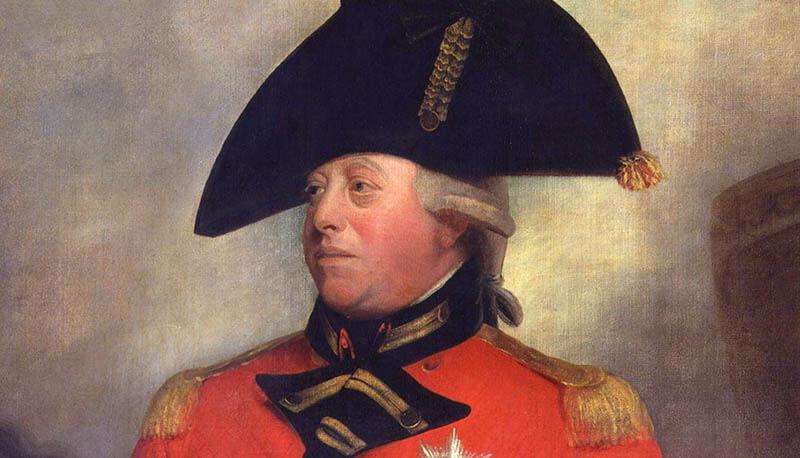Concetti Chiave
- The Hanoverian period saw the rise of the Whig party, leading to the establishment of a cabinet system and the first Prime Minister, Sir Robert Walpole.
- George I's reign was marked by rebellions in favor of the Stuarts, while George II presided over a time of peace and prosperity.
- England's maritime power grew during the 18th century, despite losing a war with Spain, and it gained territories like Canada and India after the Seven Years War.
- The American colonies' desire for independence, spurred by lack of representation and oppressive taxes, culminated in the Boston Tea Party and the signing of the Declaration of Independence in 1776.
- The industrial revolution, driven by technological advancements, capital availability, and population growth, transformed England's economy and society, leading to urbanization and significant social changes.
Ascesa di George I e il governo Whig
Queen Anne was succeeded by George I, according to the act of settlement.
He didn’t know the English language and because of that he left the government to his Whig’s ministers. The fact that all the ministers were Whigs led to the development of a cabinet and a Prime Minister, Sir Robert Walpole. The Whigs supported trade, freedom of press and toleration
During George I reign broke out several rebellions in favour of the Stuarts, like the Jacobite Rebellion (1715)
Regno di George II e conflitti internazionali
George II succeeded his father George I, during his reign there was a long period of peace and prosperity.
England maritime power was increased damaging Spain; this led to a war in which England was defeated.
In 1743 England took part in the War of Austrian Succession in support of Maria Teresa and they won.
In 1756 the Seven Years War broke out against France England gained control of Canada and India.
George III e la perdita delle colonie americane
George III succeeded his grandfather George II in 1760
He wanted to recover the power of the crown making the Cabinet and the prime minister instrument of the king.
The Seven Years War ended with the treaty of Paris and England obtained Canada. 
-loss of thirteen colonies in America.
-Industrial revolution.
Rivoluzione industriale e cambiamenti sociali
This was a period of transition: from the decline of classical values to the birth of romantic ideas
In America the distance from the mother country had developed an independent spirit; in addition to that after the treaty of Paris they no longer needed England’s help against France and Indians.
The Americans were not represented in the English parliament and they didn’t accept taxes imposed without their consent. In Boston a rebellion broke out against the tea tax (Boston tea party ), they threw a large quantity of tea in the harbour, with the other twelve colonies they asked England to withdraw its garrison, England didn't accept and the war broke out. Thanks to George Washington and Thomas Jefferson on July 4, 1776 the declaration of independence was signed.
The loss of the English colonies was compensated by growing supremacy in India, which was under the direct control of British government.
England in the first period of the French Revolution was neutral but then the English realized that it was necessary to oppose French hegemony.
Whit the invention of machines in 1769 in England began the industrial revolution.
Many events led to the birth of the industrial revolution: the enclosures, the availability of capital, the growth in population witch brought fresh labour to industries and the improved conditions in transports.
The scientific techniques and the machines were applied also in agriculture, there is a close collection between agricultural and industrial revolution, in booth there are new technical advances and those revolution needed also financial support, in this way rich people became very important and led to a division of the society (capital and labour), the industrial revolution led to an urbanization of the cities. In this historical period there was an important theory of laissez faire according to which the state was not to interfere with economic activity.
During George III reign there were many social changes: cases of overpopulation and bad sanitary condition in factories, exploitation of Children and women’s work. Because of those awful condition Humanitarianism born.
Women became more important in the social life, some travelled and others fought for emancipation and better education.
Domande da interrogazione
- Chi succedette alla regina Anna e quale fu l'impatto linguistico sul governo?
- Quali furono le conseguenze della Guerra dei Sette Anni per l'Inghilterra?
- Quali eventi significativi accaddero durante il regno di George III?
- Quali furono le cause della Rivoluzione industriale in Inghilterra?
- Quali cambiamenti sociali si verificarono durante il regno di George III?
George I succedette alla regina Anna secondo l'atto di successione. Non conosceva la lingua inglese e per questo lasciò il governo ai ministri Whig, portando allo sviluppo di un gabinetto e di un Primo Ministro, Sir Robert Walpole.
La Guerra dei Sette Anni portò all'Inghilterra il controllo del Canada e dell'India, conclusa con il trattato di Parigi.
Durante il regno di George III accaddero la perdita delle tredici colonie americane, la Rivoluzione francese e la Rivoluzione industriale.
La Rivoluzione industriale fu causata da fattori come le recinzioni, la disponibilità di capitale, la crescita della popolazione e il miglioramento dei trasporti.
Durante il regno di George III ci furono cambiamenti sociali come sovrappopolazione, cattive condizioni sanitarie nelle fabbriche, sfruttamento del lavoro di bambini e donne, e la nascita dell'Umanitarismo.









 Accedi a tutti gli appunti
Accedi a tutti gli appunti
 Tutor AI: studia meglio e in meno tempo
Tutor AI: studia meglio e in meno tempo